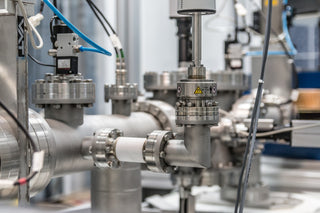

Industrial Device & Equipment
Welcome to our comprehensive guide on tubing for industrial devices. In this article, we will explore the various aspects of tubing used in industrial applications, including its importance, key features, and considerations for selecting the right tubing for your specific needs.
The Importance of Tubing in Industrial Devices
Tubing plays a critical role in the functionality and performance of industrial devices. It serves as a conduit for the transportation of fluids, gases, and other materials within the device. The quality and reliability of the tubing directly impact the overall efficiency and effectiveness of the device.
Key Features of High-Quality Tubing
When selecting tubing for industrial devices, it is essential to consider the following key features:
- Thermal Weldability: High-quality tubing should have excellent thermal weldability, allowing for secure and leak-free connections. This feature ensures the integrity of the fluid or gas being transported.
- Sterilizability: In industries such as bioprocessing and pharmaceuticals, sterilization of tubing is crucial to maintain hygienic conditions. Look for tubing that can withstand various sterilization methods without compromising its structural integrity.
- Resistance to Corrosive Chemicals: Industrial devices often come into contact with corrosive chemicals. Tubing with high chemical resistance ensures longevity and reliability, even in harsh environments.
Selecting the Right Tubing for Your Industrial Device
Choosing the right tubing for your industrial device requires careful consideration of several factors:
- Fluid Compatibility: Ensure that the tubing material is compatible with the specific fluid or gas it will be transporting. Different materials have varying levels of resistance to different substances.
- Temperature and Pressure Ratings: Consider the operating temperature and pressure conditions of your industrial device. Select tubing that can withstand these conditions without compromising its performance.
- Size and Dimensions: Determine the appropriate size and dimensions of the tubing based on the flow rate and space constraints of your industrial device.
- Longevity and Durability: Look for tubing that is known for its longevity and durability. This ensures that your industrial device will continue to operate efficiently over an extended period.
Conclusion
In conclusion, tubing plays a vital role in the functionality and performance of industrial devices. By selecting high-quality tubing with features such as thermal weldability, sterilizability, and resistance to corrosive chemicals, you can ensure the reliability and efficiency of your industrial device. Consider factors such as fluid compatibility, temperature and pressure ratings, size and dimensions, and longevity when choosing the right tubing for your specific needs. For more information or assistance in selecting the appropriate tubing for your industrial device, please feel free to contact us at info@innovapure.com.





